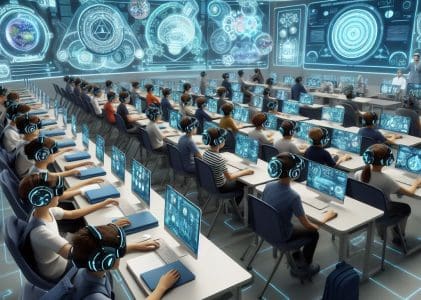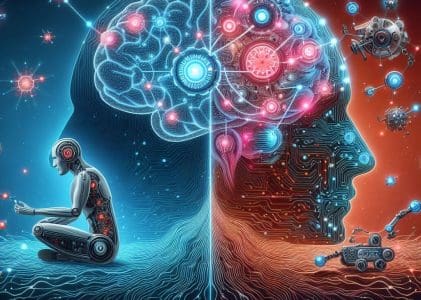To connect the dots in a tapestry of knowledge – Pedagogy in the Digital Age
Listen to the story {Play} Once upon a time, in a realm where knowledge was often force-fed like bitter medicine, a revolutionary pedagogy emerged, one that whispered of deep understanding, vibrant stories, and boundless exploration. Tired of dusty textbooks and droning lectures, it envisioned a pedagogy that would ignite the …












